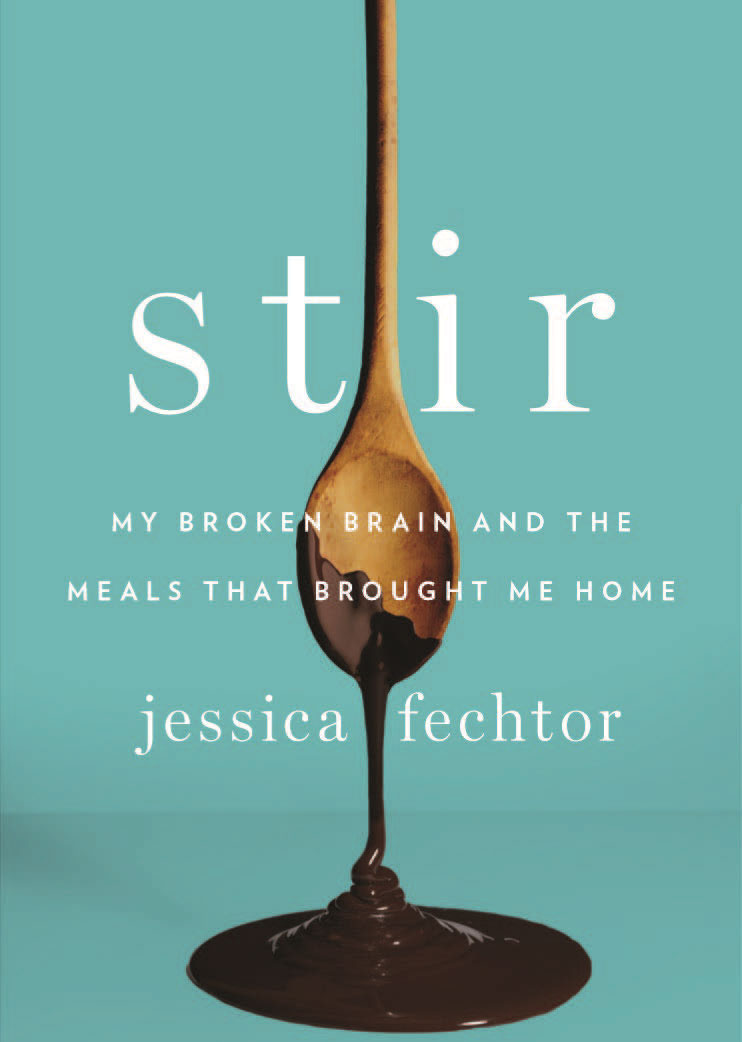Jessica Fechtor was a newly married 28-year-old Harvard graduate student when she went for a run one morning and an aneurysm ruptured in her brain.
Because the weather was bad, she had been running in a gym, and the fast actions of people around her to get her help saved her life. Along the long road to recovery, she began examining her own health. It was in the kitchen that she truly began to recover, basking in the restorative powers of baking and cooking good food.
As Fechtor recovered, she decided to write a book about her healing process. “Stir: My Broken Brain and the Meals that Brought Me Home,” published in 2015, is a memoir filled with recipes and a glimpse at how food connects us to the world around us. Fechtor, now 36 and living in San Francisco with her family, answered questions about her book and what went into it.
What was your recovery like?
The surgery to repair the aneurysm had been successful, but there were complications. I lost my sense of smell, which eventually came back, and the vision in my left eye, which did not. I developed a life-threatening infection in the tissue surrounding my brain, and a portion of my skull became so diseased the surgeon had to remove it. (She wore a medically prescribed helmet for a year, then got a prosthesis.) The physical recovery was hard. I was often nauseated, dizzy and very tired. Worse, though, was my loss of faith in my body, my strength, my vitality. It was a real identity crisis. I was someone who ate her vegetables, exercised, flossed. I felt broken and betrayed by the body I’d always taken care of.
What made you decide to write a book?
I had questions. I knew baking, cooking and writing about it had felt like an engine for my recovery, but I wasn’t sure why. What was this link between identity and food, and why was it so important to me? Since writing is how I figure out what I think and feel, I decided to write a book to answer my own questions. It was my way of learning how to relate to what had happened to me, to claim it.
Do you have a favorite recipe from your book? Why is it your favorite?
My touchstone recipe is Marcella’s Butter Cake, the first recipe in the book. It’s a very simple cake — butter, flour, eggs, sugar and a little bit of vanilla and almond extract. It comes together by hand in 10 minutes, and then you pour it into a fluted tart pan. I sprinkle some toasted sliced almonds and sugar on top. I like it because it’s really simple and at the same time, special: rich, beautiful, the kind of cake you’d be proud to serve at the end of a grown-up dinner party, but equally at home on a weekday afternoon with a cup of tea.
You also began writing a food blog. What do you focus on?
I started writing Sweet Amandine (www.sweetamandine.com) in January of 2009 at the suggestion of a friend who came to visit when I was in the darkest part of my recovery. She helped me realize that at a time when I was feeling estranged from my body, my work, my home and my life, it was important for me to spend whatever energy I had on something I loved. She knew I loved to bake and to write. I focused on recipes that made me feel the most like myself, simple things like drop biscuits, vegetable soup, banana bread, and wrote down the stories they carried with them.
Health-wise, how are you now?
I am 100 percent well. I’m still blind in my left eye, but over time my brain has remapped itself and now I barely notice the deficit.
What do you most hope people take away from your book?
Beginnings are everywhere.


